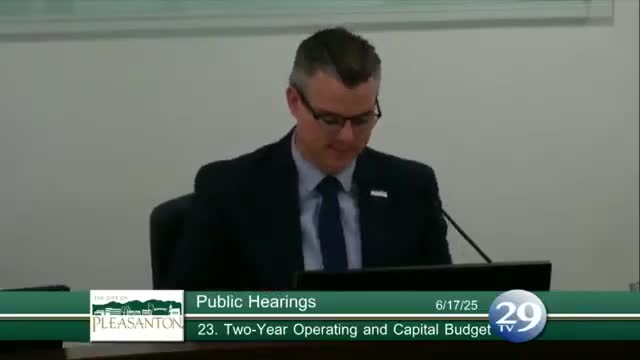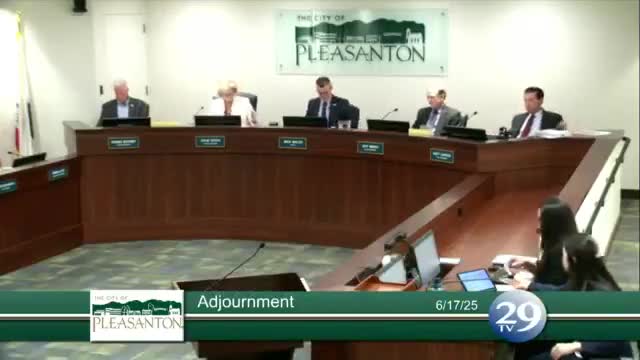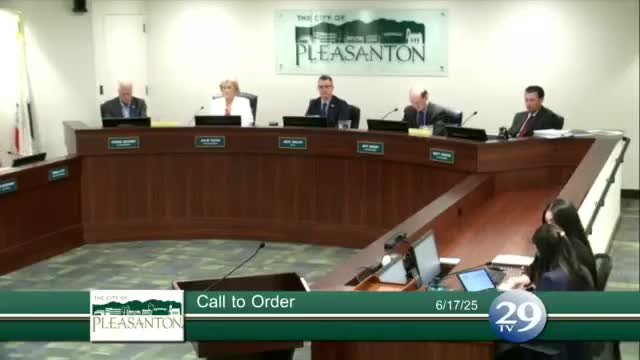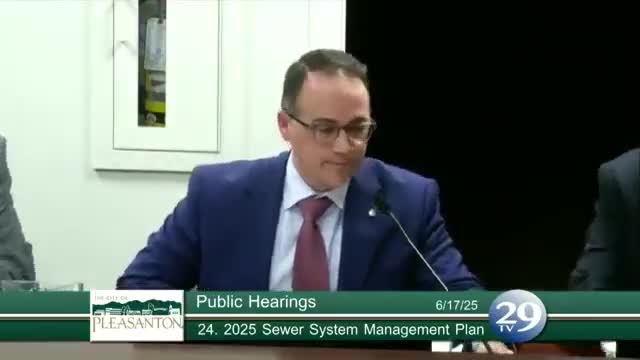Article not found
This article is no longer available. But don't worry—we've gathered other articles that discuss the same topic.

Pleasanton adopts two‑year budget, approves $5‑year CIP and directs study of downtown train quiet zone

Pleasanton reports settlement with Housing Action Coalition; council to consider rezoning of three commercial sites

Pleasanton Geological Hazard Abatement District approves monitoring contract and 2025 assessments

